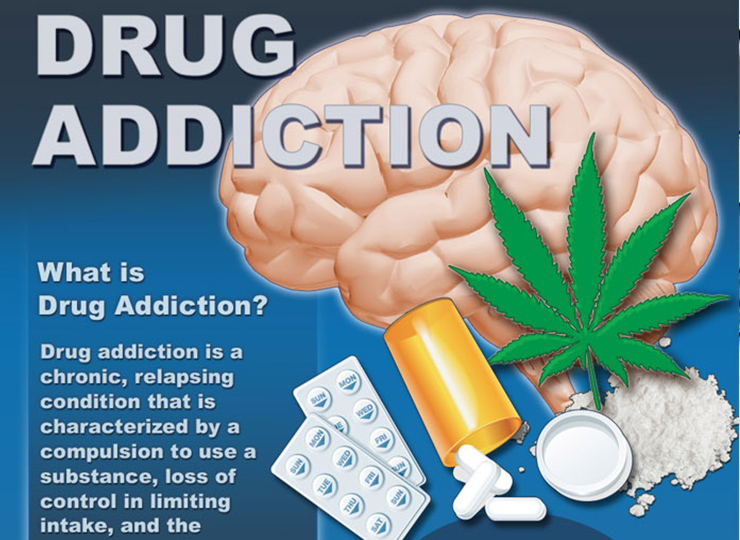Drug addiction subject

Drug addiction subject and the brains health must be addressed objectively
Drug addiction subject and the brain: What happens to the brain when one takes drugs?
The dangers of drug addiction subject are significantly based on the chemicals they have that tap into the brain’s communication system and disrupt the way nerve cells normally send, receive, and process information. And according to the experts from AWAREmed Health and Wellness Resource Center under the able leadership of doctor Dalal Akoury MD, we have at least two ways that drugs cause this disruption it can either happen by:
- Imitating the brain’s natural chemical messengers and
- Over-stimulating the “reward circuit” of the brain
Drug addiction subject and the brain: Effects of substance on the brain
Some drugs (e.g., marijuana and heroin) have a similar structure to chemical messengers called neurotransmitters, which are naturally produced by the brain. This similarity allows the drugs to confuse the brain’s receptors and activate nerve cells to send abnormal messages.
Other drugs, such as cocaine or methamphetamine, can cause the nerve cells to release abnormally large amounts of natural neurotransmitters (mainly dopamine) or to prevent the normal recycling of these brain chemicals, which is needed to shut off the signaling between neurons. The result is a brain awash in dopamine, a neurotransmitter present in brain regions that control movement, emotion, motivation, and feelings of pleasure.
The overstimulation of this reward system, which normally responds to natural behaviors linked to survival (eating, spending time with loved ones, etc.), produces euphoric effects in response to psychoactive drugs. This reaction sets in motion a reinforcing pattern that “teaches” people to repeat the rewarding behavior of abusing drugs.
As a person continues to abuse drugs, the brain gets used to the irresistible surges in dopamine by producing less dopamine or by reducing the number of dopamine receptors in the reward circuit. The result is a lessening of dopamine’s impact on the reward circuit, which reduces the abuser’s ability to enjoy not only the drugs but also other events in life that previously brought pleasure. This decrease compels the addicted person to keep abusing drugs in an attempt to bring the dopamine function back to normal, but now larger amounts of the drug are required to achieve the same dopamine high an effect known as tolerance.
Long-term abuse causes changes in other brain chemical systems and circuits as well. Glutamate is a neurotransmitter that influences the reward circuit and the ability to learn. When the optimal concentration of glutamate is altered by drug abuse, the brain attempts to compensate, which can impair cognitive function. Brain imaging studies of drug-addicted individuals show changes in areas of the brain that are critical to judgment, decision making, learning and memory, and behavior control. Together, these changes can drive an abuser to seek out and take drugs compulsively despite adverse, even devastating consequences that are the nature of addiction. All these are not good for human health and that is why it is important that you seek expert’s opinion with the professionals from AWAREmed Health and Wellness Resource Center today.
Drug addiction subject and the brain: What happens to the brain when one takes drugs?








